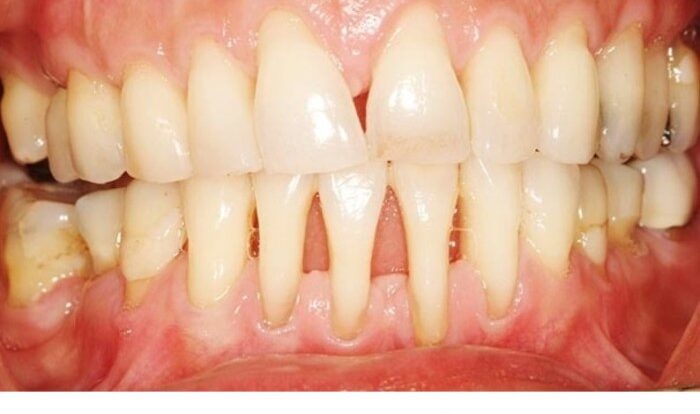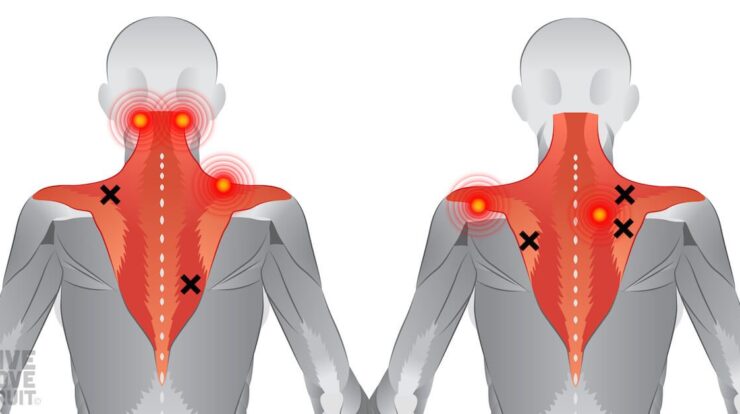
How to cure gum disease without a dentist – Are you struggling with gum disease but dread the thought of visiting the dentist? Don’t despair! This guide will empower you with practical and effective strategies to combat gum disease from the comfort of your own home. Discover natural remedies, lifestyle adjustments, and alternative therapies that can help you restore your gum health without breaking the bank or enduring painful procedures.
Gum disease, also known as periodontal disease, is a common problem that affects millions of people worldwide. While it can be a nuisance, it can also lead to serious health complications if left untreated. The good news is that there are many things you can do to prevent and treat gum disease without relying solely on professional dental care.
Home Remedies

Gum disease, a prevalent dental condition, can be effectively managed using a variety of natural remedies. These remedies, derived from herbal ingredients, essential oils, and dietary supplements, offer potential benefits in reducing inflammation, combating bacteria, and promoting gum health. However, it’s crucial to consult with a healthcare professional before incorporating any home remedies into your routine, as certain remedies may interact with medications or have other potential risks.
Natural remedies for gum disease can be categorized into three main types: herbal mouthwashes, essential oils, and dietary supplements. Herbal mouthwashes, made from extracts of plants like sage, thyme, and green tea, possess antibacterial and anti-inflammatory properties. Essential oils, such as tea tree oil and clove oil, are highly concentrated plant extracts with potent antimicrobial and anti-inflammatory effects.
Dietary supplements, like vitamin C and probiotics, support overall immune function and gum health.
Herbal Mouthwashes
- Sage:Known for its antibacterial and anti-inflammatory properties, sage is a popular herb for treating gum disease. A study published in the Journal of Periodontology found that sage mouthwash was effective in reducing plaque and gingivitis.
- Thyme:Thyme contains thymol, a compound with strong antibacterial and antifungal properties. A study published in the journal Phytotherapy Research found that thyme mouthwash was effective in reducing gum bleeding and inflammation.
- Green tea:Green tea is rich in catechins, antioxidants with antibacterial and anti-inflammatory properties. A study published in the journal Caries Research found that green tea mouthwash was effective in reducing plaque and gingivitis.
Essential Oils
- Tea tree oil:Tea tree oil is a powerful antibacterial and antifungal agent. A study published in the journal Australian Dental Journal found that tea tree oil mouthwash was effective in reducing plaque and gingivitis.
- Clove oil:Clove oil contains eugenol, a compound with strong antibacterial and anti-inflammatory properties. A study published in the journal Journal of Ethnopharmacology found that clove oil mouthwash was effective in reducing gum bleeding and inflammation.
Dietary Supplements
- Vitamin C:Vitamin C is an essential nutrient for gum health. It helps to strengthen the connective tissue that supports the gums and teeth. A study published in the journal Journal of Periodontology found that vitamin C supplements were effective in reducing gum bleeding and inflammation.
Gum disease is a common problem that can lead to serious health issues if left untreated. While it’s important to see a dentist for regular checkups and cleanings, there are some things you can do at home to help prevent and treat gum disease.
Learn more about how to cure gum disease without a dentist by reading this informative article. The article provides helpful tips and advice on how to keep your gums healthy and free of disease.
- Probiotics:Probiotics are live bacteria that have health benefits. They help to maintain a healthy balance of bacteria in the mouth, which can help to prevent gum disease. A study published in the journal Journal of Clinical Periodontology found that probiotics were effective in reducing gum bleeding and inflammation.
Lifestyle Modifications
Gum disease, also known as periodontal disease, is a common condition that affects the gums and the bones that support the teeth. It is caused by bacteria that form plaque on the teeth. Plaque is a sticky film that contains bacteria, food particles, and saliva.
If plaque is not removed regularly, it can harden into tartar, which can irritate the gums and cause them to become inflamed. This inflammation can lead to gum disease.
There are a number of lifestyle factors that can contribute to gum disease, including:
- Smoking
- Poor oral hygiene
- Stress
Smoking, How to cure gum disease without a dentist
Smoking is one of the most significant risk factors for gum disease. Chemicals in cigarette smoke damage the gums and make them more susceptible to infection. Smoking also reduces the amount of oxygen in the blood, which can slow down the healing process.
As a result, smokers are more likely to develop gum disease and have more severe symptoms.
Gum disease is a common problem that can lead to serious health issues if left untreated. While it’s best to see a dentist for professional treatment, there are some things you can do at home to help improve your gum health.
One option is to use Bergen Mecconline , a natural supplement that has been shown to reduce inflammation and bleeding in the gums. Bergen Mecconline is made from a blend of herbs and vitamins that work together to improve oral health.
If you’re looking for a natural way to help improve your gum health, Bergen Mecconline is a good option to consider.
Poor Oral Hygiene
Poor oral hygiene is another major risk factor for gum disease. When you don’t brush and floss your teeth regularly, plaque and tartar can build up on your teeth and irritate your gums. This irritation can lead to inflammation and gum disease.
Stress
Stress can also contribute to gum disease. When you’re stressed, your body produces hormones that can increase inflammation. This inflammation can damage the gums and make them more susceptible to infection.
Recommendations
There are a number of things you can do to reduce your risk of gum disease, including:
- Quit smoking
- Brush and floss your teeth twice a day
- See your dentist for regular checkups and cleanings
- Manage stress
By following these recommendations, you can help to prevent and treat gum disease and keep your gums healthy.
Gum disease can be a pain in the neck, but there are ways to treat it without having to go to the dentist. You can find ways to cure gum disease without a dentist online or in your local library.
There are also many natural remedies that can help to relieve the symptoms of gum disease. If you’re looking for a way to cure gum disease without a dentist, there are many options available to you.
Nutritional Considerations
Maintaining optimal gum health requires a balanced diet rich in essential nutrients. Vitamin C, vitamin D, and calcium play crucial roles in strengthening gums and preventing gum disease.
Vitamin C
Vitamin C, an antioxidant, supports the production of collagen, a protein essential for maintaining healthy gums. It strengthens the connective tissues that hold teeth in place and protects against bacterial infections.
- Citrus fruits:Oranges, grapefruits, lemons
- Berries:Strawberries, blueberries, raspberries
- Broccoli:Rich in vitamin C and antioxidants
Vitamin D
Vitamin D helps the body absorb calcium and supports immune function. It has anti-inflammatory properties that can reduce gum inflammation and prevent periodontal disease.
- Fatty fish:Salmon, tuna, mackerel
- Eggs:Rich in vitamin D and protein
- Fortified milk:A good source of vitamin D and calcium
Calcium
Calcium is essential for strong bones and teeth. It helps maintain healthy gums by supporting the structure of the jawbone and preventing tooth decay.
If you’re looking for ways to cure gum disease without breaking the bank, you’re in luck! There are several effective home remedies that can help you get rid of gum disease symptoms, such as bleeding, swelling, and pain. Check out how to cure gum disease without a dentist for more information on how to prevent and cure gum disease without a dentist.
- Dairy products:Milk, yogurt, cheese
- Leafy green vegetables:Spinach, kale, collard greens
- Beans:Rich in calcium, fiber, and protein
Consuming a balanced diet that includes these nutrient-rich foods can help prevent or reduce gum disease by strengthening gums, reducing inflammation, and supporting overall oral health.
Dental Hygiene Techniques
Maintaining proper dental hygiene is essential for preventing and treating gum disease. Brushing and flossing your teeth regularly, along with using mouthwash, can help remove plaque and bacteria from your teeth and gums.
An electric toothbrush can be more effective at removing plaque and bacteria than a manual toothbrush. Dental floss helps to remove plaque and bacteria from between your teeth, where your toothbrush can’t reach. Mouthwash can help to kill bacteria and freshen your breath.
If you’re looking for ways to cure gum disease without a dentist, you’re not alone. Millions of people suffer from gum disease, and it can be a painful and debilitating condition. The good news is that there are a number of things you can do to cure gum disease without a dentist, including following a healthy oral hygiene routine , eating a healthy diet, and avoiding sugary drinks.
With a little effort, you can cure gum disease without a dentist and improve your overall oral health.
Regular Dental Checkups and Professional Cleanings
Regular dental checkups and professional cleanings are important for maintaining good oral health. Your dentist can check for signs of gum disease and other dental problems, and they can clean your teeth and remove plaque and bacteria that you can’t remove on your own.
Alternative Therapies
Alternative therapies offer potential adjunctive approaches to conventional gum disease treatment. While scientific evidence supporting their efficacy varies, some therapies show promise.
Acupuncture
Acupuncture involves inserting thin needles into specific points on the body to stimulate the nervous system. For gum disease, it may reduce inflammation and improve blood circulation to the gums. Studies suggest acupuncture may enhance the effects of conventional treatment.
Ozone Therapy
Ozone therapy involves administering ozone gas to the affected area. Ozone has antibacterial and anti-inflammatory properties. It may help reduce bacteria in the periodontal pockets and promote gum healing. However, more research is needed to establish its effectiveness and safety.
Laser Therapy
Laser therapy uses low-level lasers to stimulate tissue repair and reduce inflammation. It may promote collagen production, enhance blood flow, and kill bacteria. Studies have shown promising results in improving gum health, but more research is warranted.
It’s crucial to note that alternative therapies should not replace conventional dental care. Consult a qualified healthcare professional before using any alternative therapy to ensure safety and compatibility with your overall treatment plan.
Last Word: How To Cure Gum Disease Without A Dentist
By incorporating these strategies into your daily routine, you can significantly improve your gum health and maintain a beautiful, healthy smile. Remember, while these home remedies and lifestyle modifications can be effective, it’s still essential to consult with a healthcare professional if you experience persistent or severe gum problems.
They can provide personalized guidance and ensure that you receive the most appropriate treatment for your specific needs.
Commonly Asked Questions
Can I cure gum disease permanently?
Gum disease is a chronic condition that can be managed but not permanently cured. However, with proper care and treatment, you can prevent it from progressing and maintain healthy gums.
How long does it take to cure gum disease at home?
The time it takes to see results from home remedies for gum disease varies depending on the severity of the condition and the individual’s response to treatment. Some people may notice improvements within a few weeks, while others may need several months to see significant results.
What are the early signs of gum disease?
Early signs of gum disease include bleeding gums, swelling, redness, and bad breath. If you notice any of these symptoms, it’s important to see a dentist or periodontist for diagnosis and treatment.





